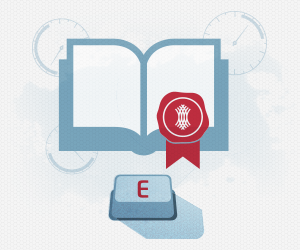For scientists
Contribute to the assessment and steering of science
The work of scientists is repeatedly assessed by various committees, for jobs, tenure, grants or funding. When you read scientific publications, you implicitly assess the scientific relevance of those publications, as well. Your opinion, as an expert in the publications’ topics, might be more pertinent than that of the persons who are typically available for joining a review committee. What's more, committee members, due to lack of time, might not even read the publications that they are supposed to assess, but rely on imprecise proxies like the perceived quality of the journals where the papers were published.
Yet your opinion on the publications you read does not currently have the chance to influence the decisions that are supposed to be based on the review of the content of those publications. Those decisions significantly influence the future of science and steer its course by establishing which scientists get jobs, tenure or funding, and which do not get them. By sharing on Epistemio ratings or reviews of the publications you read, you increase your contribution to the steering of science. Your ratings and reviews may be anonymous or signed.


Manage references
Epistemio allows you to store online your collection of references to scientific publications, so that you can easily access it everywhere you go, from any computer or device. You may sort and classify references in folders (collections), organized hierarchically, with no limits on the number of levels. You may import and export references from a variety of formats such as Bibtex, EndNote or RefMan. References can be added to your collections with one click, after searching them in our search engine.
Embed collections of publications
Epistemio allows you to embed collections (lists) of publications on any website. The embedded collections can be easily updated on Epistemio and all updates will instantly apply on all websites where the collections are embedded. For example, you may avoid the hassle of keeping your list of publications up to date on multiple websites, such as your institutional web page and your personal website, by embedding on all these websites the same list managed centrally through Epistemio. Embedding dramatically simplifies publishing on websites and keeping up to date long lists of publications, such as course bibliographies, with proper formatting and links to the full-text versions.


Share collections of publications
Any of your collections of publications on Epistemio can also be shared with your colleagues, students or the public as a link that you can simply copy and paste in an email, on Twitter, in an instant messenger or elsewhere. You may choose whether the link has a secret code such that you control who has access to the collection, or whether the collection should be publicized to search engines or in browsable directories.
Enhance the discoverability of your publications
You may create a public profile on Epistemio where you can list all of your publications for extra discoverability. Once you provide your name, Epistemio automatically searches in databases your publications so that you can build the list of your own publications with just several clicks, without the hassle of typing references. Once created, the list can be easily kept up to date, shared or embedded, exported to a variety of formats and styles. However, you may use all of Epistemio’s other features without creating a public profile if you would like so.


Easily format your references
Applying to references a variety of styles like APA, Chicago, IEEE, Vancouver, AMA, Harvard or MLA can be easily performed through just several clicks. Formatted references can be pasted into your favorite word processor, shared or embedded on websites.
Get extra credit for your publication in PLOS ONE, Scientific Reports or similar journals
Open access journals such as PLOS ONE, Scientific Reports or BMJ Open publish all papers they judge to be technically sound; they do not attempt to select the papers that they publish based on their scientific importance. Some authors perceive this as a disadvantage to career advancement (e.g., tenure, grant applications), because committee members might view such papers as being of lesser quality compared to those published in more traditional peer reviewed journals.
Epistemio’s Reviews on Demand enables authors to reap the benefits of publishing in open-access "megajournals" while earning the same credibility as papers published in traditional peer-reviewed journals. Epistemio will perform an independent, post-publication review of your article, which you can then reference when including your article in a CV. This extra step can effectively demonstrate to committee members who assess your work that your article is of no lesser quality than an article published in a traditional journal.

For research managers and administrators
Aggregate, showcase and report institutional lists of publications
Publications are the final result of all of the painstaking work within a research laboratory. Yet many institutions do not have on their websites up-to-date lists of all the publications that they have created. In many cases, the publications web page is out of date, does not include all publications, or does not feature links for easy access to the publications.
Epistemio helps laboratories, research groups, departments, universities or institutes to easily manage their lists of publications. Once a scientist adds a publication to Epistemio, the publication can instantly appear on both the institutional publications web page as well on any of the scientist's personal profiles on the web.
Scientists are motivated to add their publications to the institutional page because this also updates their personal profile. In most cases, adding a new publication means just clicking a confirmation checkbox as publications are automatically found in our database. Labs can instantly buy a subscription with a credit card, independently of the university's or institute’s centralized purchasing processes.

Easily assess through peer review the research performed in your institution
Epistemio Research Assessment Exercise enables departments, universities, institutes or governments to easily assess the research performed in their subunits with a fast, reliable peer review process. This provides an alternative to bibliometric indicators that are typically used. However, the process remains cost-effective, by relying on automated tools, developed by Epistemio, for streamlining the selection of reviewers, communicating to them and aggregating statistics about the review process.
Using journal-level indicators, such as a journal’s impact factor, when assessing individual articles, produces an imprecise estimate of that article’s quality. When using a relatively small panel of reviewers to assess research within an institution, it is unlikely that all of the publications in need of assessment will fall within the reviewers’ core areas of expertise, or that the reviewers will have the time to read in depth all of these publications.
Epistemio has developed intelligent algorithms that crunch “big data” about citation networks in order to suggest the most suitable reviewers. The suggested reviewers will be experts in the core field of the publications under assessment, and they may even have already read the publications as part of their own line of work. Thus, the effort spent reviewing the publications is minimized, and the reviewers will be able to quickly provide relevant ratings and reviews.
